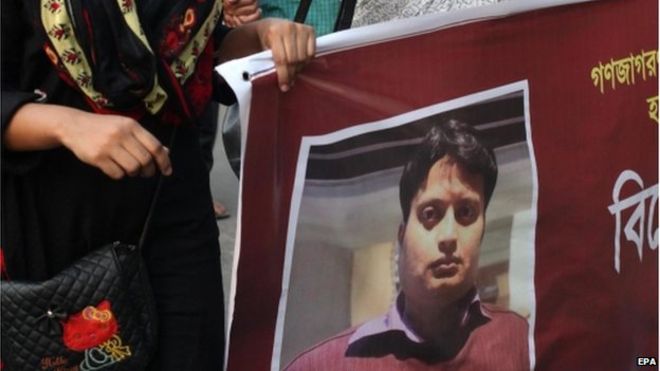Third Blogger Hacked to Death in Bangladesh, Sets a Pattern
Ananta Bijoy Das was stabbed to death in the street

NEW DELHI: In the third such attack in recent months, blogger-activist Ananta Bijoy Das was murdered in northeastern Sylhet in Bangladesh by unknown assailants on Tuesday. The attack has sparked a wave of criticism, with author Taslima Nasreen saying people had “given up any expectation” that Bangladesh’s government will act against such killings.
The two other bloggers who were killed in a similar fashion in Bangladesh are atheist blogger Avijit Roy who was hacked to death in February, and blogger Washiqur Rahman who was killed a month later in Dhaka.
Das, in fact, wrote blogs for Mukto-Mona, a website once moderated by Roy. Police said that Das was attacked by masked men with machetes in broad daylight, as he left his home for work. Local police officer Mohammad Rahamatullah told Reuters that Das "came out of his house and what we came to know from the local people who are witnesses, was that four miscreants chased him and killed him near his house".
All three men were killed in a similar fashion -- hacked to death with sharp weapons. Further, all three attacks were carried out on busy streets, near the victims’ homes.
The three men were all critical of religious intolerance, a sensitive issue in Bangladesh which although technically a secular country is gripped by religiously-motivated politics and violence.
In all three cases, the government and police have come under scrutiny. Roy’s death, for instance, prompted the country’s Law Commission to comment on the “general” and “helpless” way people are being targeted in the country that has, in turn, compromised faith in the judicial system. Roy’s wife, who suffered head injuries and lost a thumb in the attack, had initially pointed to police failure in preventing the attack. “While Avijit and I were being ruthlessly attacked, the local police stood close by and did not act,” Rafida told Reuters. Now, we demand that the Bangladeshi government do everything in its power to bring the murderers to justice.”
Roy’s father, Ajay Roy, also accused the police of negligence in the crime and said officers allowed the attackers to escape, adding that he was "not satisfied" with the investigation.
Tragically, these three deaths are not an aberration. They follow a string of attacks on writers, bloggers and journalists in the country. According to the “2014 World Press Freedom Index” released by Reporters Without Borders in January this year, Bangladesh ranked a low 146 of 180 nations. Ahmed Rajib Haider, an atheist blogger was hacked to death on February 2013, by machete-wielding activists from a militant group associated with the Jamaat-e-Islami party. Haider, an architect by profession, ran a blog that was instrumental in demanding trials for the perpetrators of the mass killings during the Bangladesh Liberation War of 1971, a move that was widely seen as aimed at radical Islamists. Sagar Sarowar and Meherun Runi, two well-known married Bangladeshi journalists were stabbed to death in February 2012; the motive is still to be determined. Another blogger, Asif Mohiuddin, was stabbed and accused of blasphemy.



